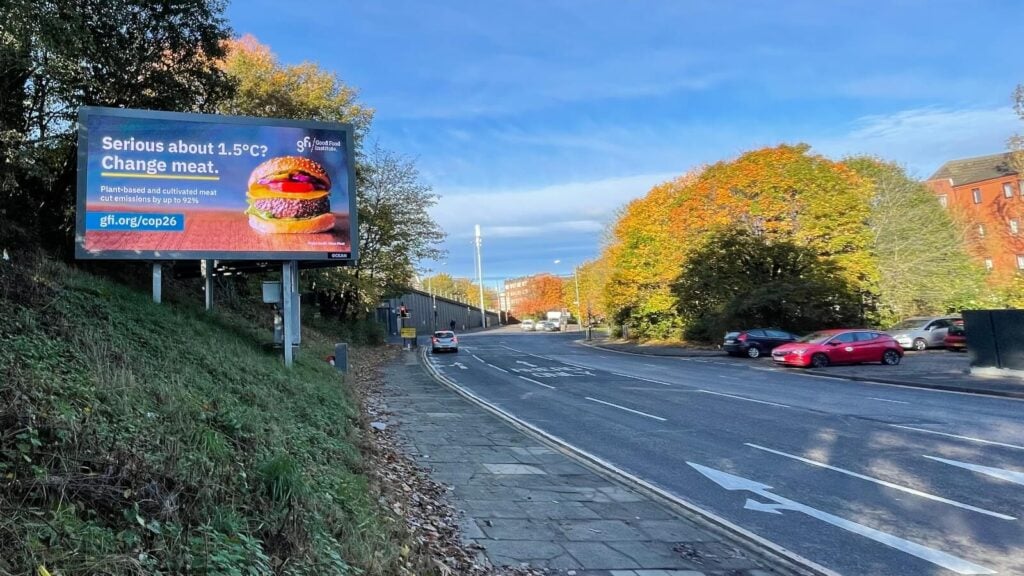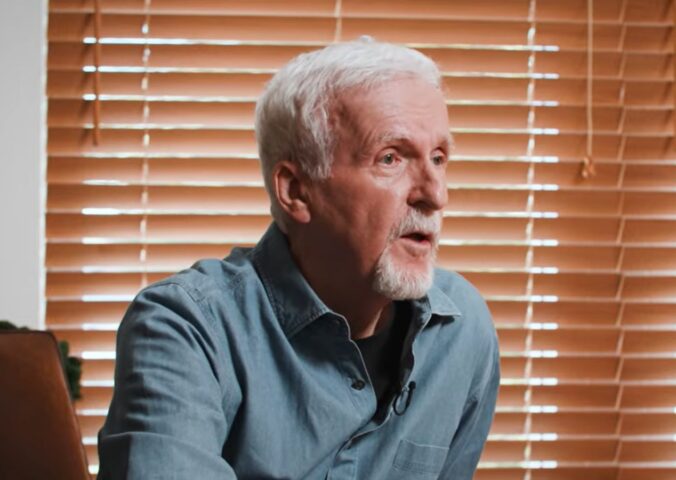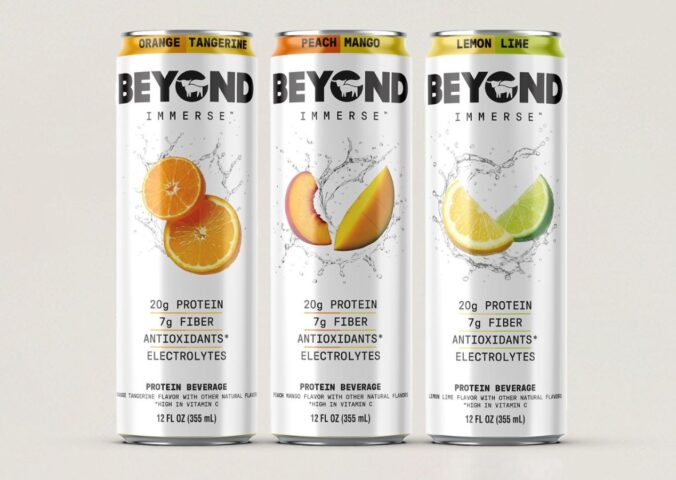The Good Food Institute (GFI) has posted billboards around Glasgow urging people to switch to plant-based and cultivated meat.
This move comes as world leaders meet in the city for the 2021 United Nations Climate Change Conference. GFI is joining several other organizations taking direct action to promote sustainable alternatives to animal agriculture.
The United Nations brings together representatives from almost every country on Earth for a global climate summit every year. The 26th summit, COP26, is currently taking place in Glasgow.
At the 2015 summit, every country agreed to limit global warming to no more than two degrees, preferably 1.5 degrees.
This commitment, known as the Paris Agreement, did not come close to achieving this. So, at COP26 this year, countries must update their plans and go much further to limit global warming.
The Good Food Institute
Bruce Friedrich is the founder and CEO of GFI, an international nonprofit working to promote plant-based and cultivated meat.
Friedrich has said that the world won’t meet the Paris 2015 targets unless conventional meat consumption falls. He will be in Glasgow with the GFI to encourage national governments to include alternative proteins in their climate emergency plans.
Alice Ravenscroft, head of policy at Good Food Institute Europe, said, “We’re on the ground in Glasgow, making the case for national governments to include sustainable proteins—meat made from plants and cultivated from cells—in their national climate plans. To achieve this potential, governments must invest billions in open-access research so that sustainable proteins become the most delicious, affordable, and convenient option for consumers.”
The GFI recently installed billboards around Glasgow highlighting how plant-based and cultivated meat can help cut emissions by up to 92 percent.

“Our billboards make clear that we can’t limit global temperature rises to 1.5ºC without changing how meat is made. Plant-based and cultivated meat can cut emissions by up to 92 percent and use 95 percent less land than farming animals,” said Ravenscroft.
Direct action across Glasgow
The GFI poster campaign coincides with direct action efforts from other organizations in Glasgow around COP26.
A PETA city center bus campaign sees buses with posters reading: “You can’t be a meat-eating environmentalist. Take Personal Responsibility: Go Vegan.”
Plant-based brand Heura projected an elephant onto buildings with the text, “plant-based diet = reduced food carbon footprint of 73%”. Earlier this week, hundreds of climate activists marched through the city as part of Extinction Rebellion demonstrations.
Outside of Glasgow, vegan artist Moby called on COP26 world leaders to endorse the Plant-Based Treaty. This is a grassroots campaign designed to put food systems at the forefront of combating the climate crisis.
Campaigners from Animal Rebellion scaled the Department for Environment, Food and Rural Affairs (Defra) building in Westminster. Hanging from the walls, they dropped a banner that read “COP: Invest in a Plant-Based Future.”
Animal Rebellion has also criticized the sustainability of the COP26 menu, which is nearly 60 percent meat and dairy-based.
Changing the global food system
At COP26, the GFI will highlight how alternative proteins can provide the meat people want while using up to 95 percent less land than conventional animal agriculture.
Research in the journal Science in 2020 showed that even if governments eliminated fossil fuel emissions immediately, it’s impossible to meet the Paris Agreement without significantly changing food production.
According to a 2021 study in Nature Food, greenhouse gas emissions from animal-based foods are twice those of plant-based, with animal agriculture emissions alone responsible for roughly one-fifth of human-caused climate breakdown.
The GFI believes food and agriculture are under-represented at COP26. It also states that nations must address the significant role agriculture and the global food system play in global warming.
Moreover, the organization says making the shift is necessary to hit our climate targets. And that we need to give people better options and make sustainable plant-based or cultivated meat the default choice.






